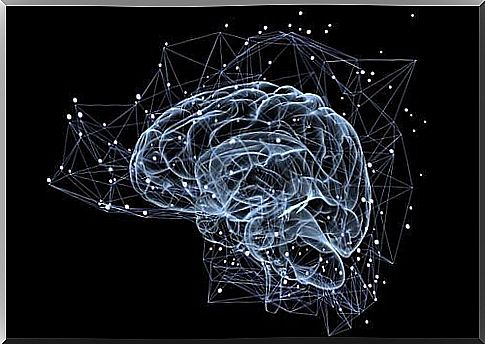Chronic Anxiety And Norepinephrine – This Is How It Is Connected

You start the day by saying that today it will not happen. Today must be a good day. But still it happens. And the reason is that when you first suffer from chronic anxiety, the fear is always there. It is waiting to take you, and when it does, you are lost. It takes your breath away, makes you tremble, makes you sweat cold and causes you to think endless thoughts and get catastrophic ideas. All of these processes are the result of a single molecule, norepinephrine. Here we will look at the connection between chronic anxiety and norepinephrine.
For those who have not heard of this neurotransmitter, which in turn behaves like a hormone, we will give a small example here in the beginning. Imagine that you are across a road and suddenly hear a car horn. You forgot to look at the traffic lights, and therefore had to react in a fraction of a second to get away. When you do this you can feel how fast your heart is beating. We can feel a lump in our stomach, and our breathing becomes much faster.

What exactly does norepinephrine do?
Noradrenaline works directly against the nervous system and is responsible for reacting in situations where the brain interprets that there is danger on the move. It is this neurotransmitter that helps us to react, run away, fight and survive. It does this by increasing our heart rate and also our blood pressure. In addition to this, the amount of oxygen transported through the lungs and the concentration of nutrients in the muscles increases. All of these changes allow us to respond faster and better to the dangers of everyday life.
That said, the problem with our modern world is that most of us respond to stressors that have nothing to do with real physical risk. Our mental fears, anxieties and phobias activate this hormone in the same way. Because of this , the effects of norepinephrine can destroy the body of people who are unable to control their anxiety, due to the link between chronic anxiety and norepinephrine.

I suffer from chronic anxiety, what is happening to me?
They say that anxiety is the disease with the hundred symptoms. The strange thing is that even though the disease has so many physical, emotional and cognitive symptoms, most people walk around with it and experience regular anxiety attacks throughout life. What was once a common and controllable anxiety ended up being something chronic. And it has developed into a much more serious disease.
The worst thing about anxiety is that it is an extremely skilled liar. It convinces us that we are losing control. It tells us that we should listen to our phobias as they are always right. And on top of that, it convinces us that we need to worry about everything and nothing. Always expect the worst, it tells us. As we can see, getting out of this eternal torment is not easy. And it’s mainly about the fact that it is the effects of the chemistry in the brain that control us. And it is in these processes that norepinephrine is so important.
Chronic anxiety affects your health
New research from the University of Iowa, USA, has shown interesting findings. Researchers there have found that there is a close link between norepinephrine and the risk of heart disease for people with chronic anxiety. Stress that persists over time can result in harmful physical changes. These include high blood pressure, heart fibrillation and cardiac arrhythmia. All of these are a danger to our health.

Norepinephrine and adrenal changes
One thing we must remember is that norepinephrine is not just produced in the brain. Outside the brain, norepinephrine produces in the adrenal glands. What does this mean? This means that chronic anxiety causes an overproduction of the hormone, which can lead to the following:
- Headache
- Digestive problems
- Insomnia
- Lack of appetite
- Burnout
- Increased sweat production
- A constant feeling of discomfort
Noradrenaline and cognitive effects
There are many interesting studies that, for example, not only show a relationship between chronic anxiety and norepinephrine, but also show a relationship between increased levels of norepinephrine and ADHD. As a neurotransmitter, this substance is a necessity to help us focus our attention. In addition, it helps us to remember data, to learn and to process information. That said, the levels must be correct for our cognitive processes to function effectively.
Too high or too low a level can lead to memory loss, inability to concentrate and learning difficulties. It is a rather tiring and complicated situation.

The link between depression, chronic anxiety and norepinephrine
We already know that chronic anxiety and norepinephrine are closely linked. But there is another fact we can not overlook. Catecholamines, a collective term for hormones produced in the adrenal glands, play an important role in the symptoms that can accompany depression. Any kind of overproduction or deficit can lead to major changes in our mood.
It is common for many patients who live an eternal spiral of fear and negative thoughts created by their own anxiety to end up suffering from a major depression. Dr. Joseph J. Schildkraut of Harvard University speculated about this in the 1960s. He discovered that it is norepinephrine and not serotonin, which causes us to suffer from chronic anxiety and depression.
Where these mental illnesses came from does not really matter. The fact is that if we have the same symptoms, then we just need to know how to escape from them, and then there are two options we can choose from. One is to stand on the edge, look down into the abyss and experience the same fear day after day. In this way, we fall back into fear every single day. The second option is simple. We can choose to do something about it. Like a plane flying over the same abyss. It observes it from above, understands it better, gets around it and puts it behind it.
Cognitive therapy can help us understand the cause of our anxiety, breathing exercises can reduce it. But we should not ignore the pharmaceutical solution to balance the production of norepinephrine either. And finally: a diet high in vitamin C, copper and omega 3 fatty acids helps us keep our neurotransmitters at the right level.









